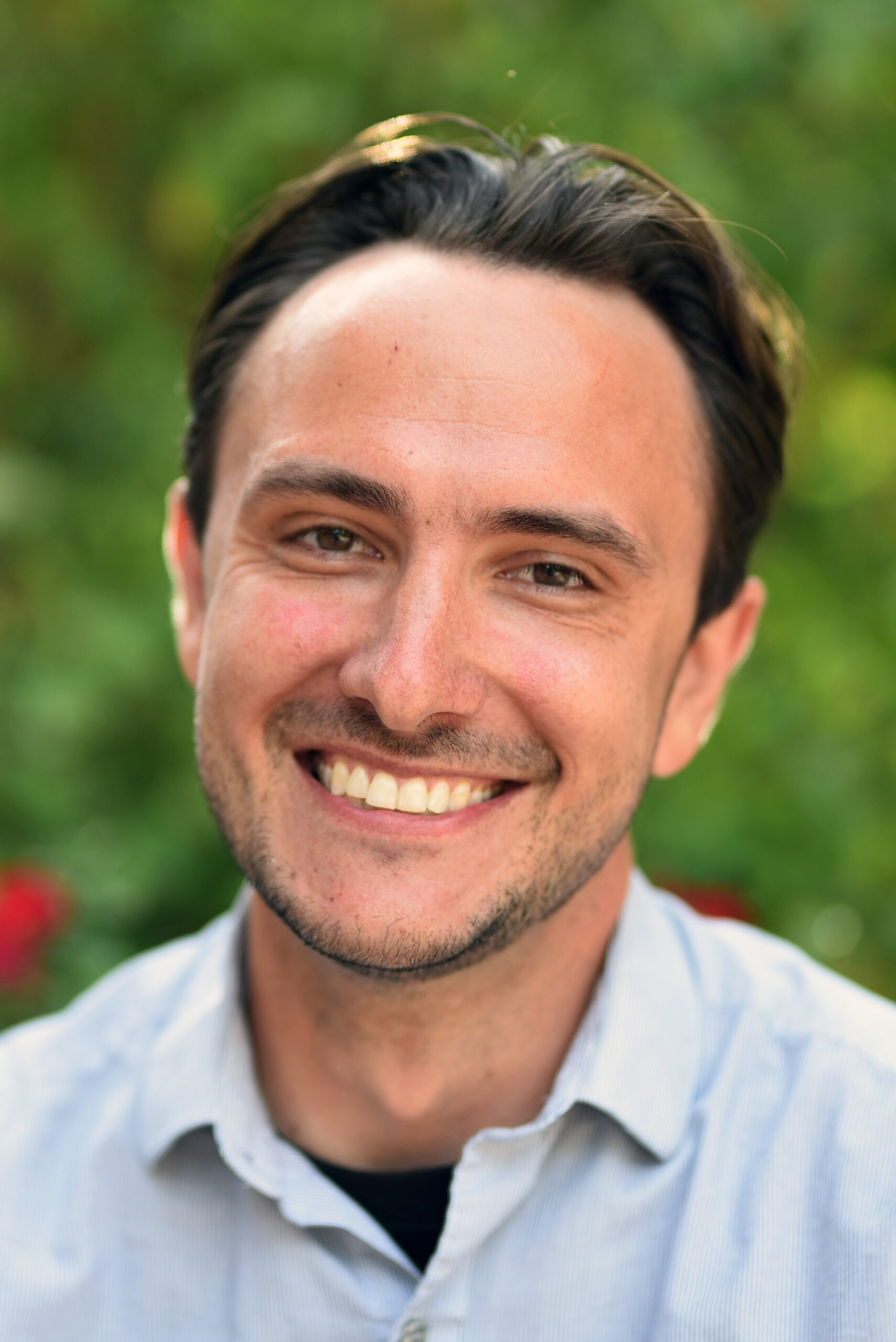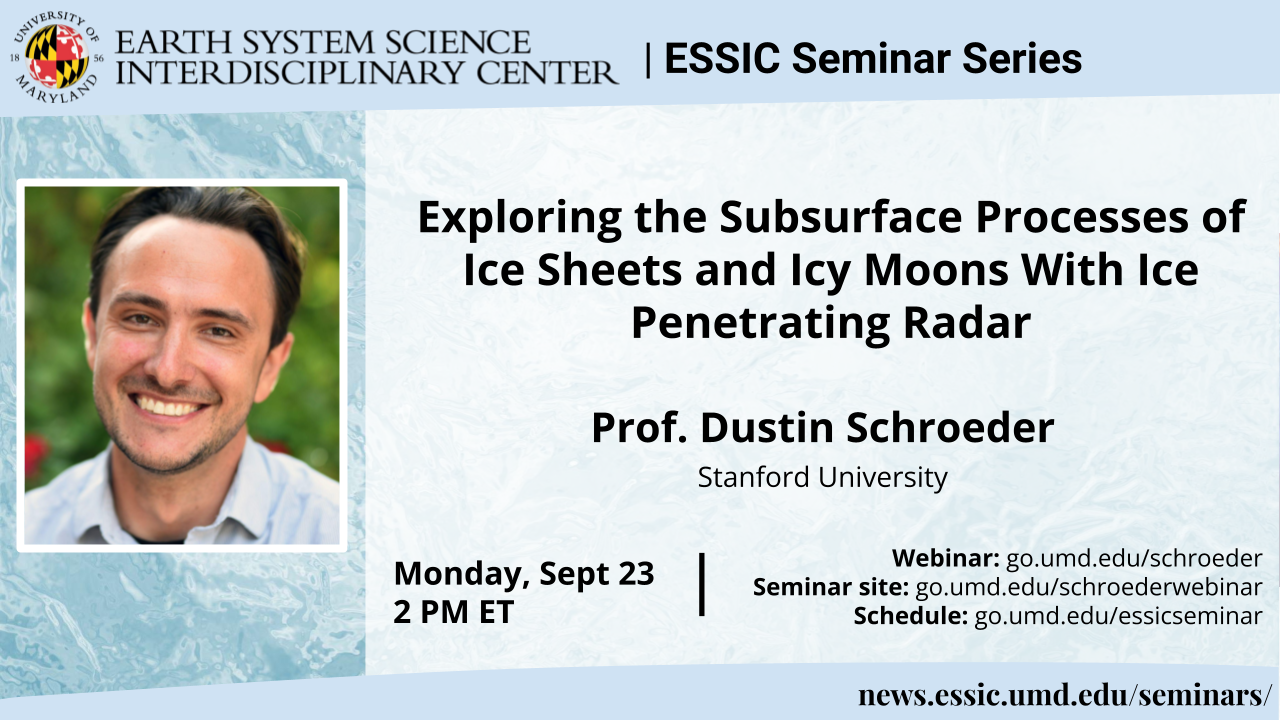
Exploring the Subsurface Processes of Ice Sheets and Icy Moons With Ice Penetrating Radar
Prof. Dustin Schroeder
Stanford University
Monday September 23, 2024, 2 PM ET
Abstract:
Radio echo sounding is a uniquely powerful geophysical technique for studying the interior of ice sheets, glaciers, and icy planetary bodies. It can provide broad coverage and deep penetration as well as interpretable ice thickness, basal topography, and englacial radio stratigraphy. However, despite the long tradition of glaciological interpretation of radar images, quantitative analyses of radar sounding data are rare and face several technical challenges. These include attenuation uncertainty from unknown ice temperature and chemistry, clutter and losses from surface and volume scattering, and a lack of problem-specific radar theory. However, there is rich, often underexploited, information in modern radar sounding data, which is being collected over terrestrial and planetary ice at an unprecedented rate. The development and application of hypothesis-driven analysis approaches for these data can place observational constraints on the morphologic, hydrologic, geologic, mechanical, thermal, and oceanographic configurations of ice sheets and glaciers. These boundary conditions – and the physical processes which they express and control – are filling a fundamental gap in our ability to understand the evolution of both marine ice sheets and icy moons.
Biosketch:
Dustin Schroeder is an Associate Professor of Geophysics and of Electrical Engineering at Stanford University, where he is a Bass University Fellow in Undergraduate Education, a Senior Fellow with the Stanford Woods Institute for the Environment, and a Senior Member with the Kavli Institute for Particle Astrophysics and Cosmology. His research primarily focuses on observing and understanding the role of continental ice sheets and their contribution to the rate of sea level rise. A growing secondary focus of his work is the subsurface exploration of icy moons. He also works on the development, use, and analysis of geophysical radar remote sensing systems that are optimized to observe hypothesis-specific phenomena. His research group aspires to approach problems from both an earth system science and radar system engineering perspective. He is also a science team member with the REASON instrument and co-chairs the Interior Working Group for NASA’s Europa Clipper Mission. He also serves as the Associate Chair and Director of Undergraduate Studies for the Stanford Geophysics Department, the Associate Chair for Undergraduate Education in the Department of Electrical Engineering, the Chair of Earth and Space Sciences for the National Science Olympiad, and is the Faculty Director for ‘Citizenship in the 21st Century’, one of the courses in Stanford’s new first-year core on Civic, Liberal, and Global Education (COLLEGE).
Prior to arriving at Stanford, he was a Radar Systems Engineer with NASA’s Jet Propulsion Laboratory at the California Institute of Technology in the Radar Concepts and Formulation Group within the Radar Science and Engineering Section. He completed his Ph.D. in Geophysics at the University of Texas at Austin as part of the UT Institute for Geophysics. He holds a BS in Electrical Engineering and a BA in Physics with minors in Mathematics and Philosophy from Bucknell University in Pennsylvania. Between his undergraduate and graduate studies he also worked as Platform Hardware Engineer at Freescale Semiconductor in Austin, Texas.
Webinar:
Event site: https://go.umd.edu/schroeder
Zoom Webinar: https://go.umd.edu/schroederwebinar
Zoom Meeting ID: 990 9650 1684
Zoom password: essic
US Toll: +13017158592
Global call-in numbers: https://umd.zoom.us/u/aMElEpvNu
For IT assistance:
Cazzy Medley: cazzy@umd.edu
Resources:
Seminar schedule & archive: https://go.umd.edu/essicseminar
Seminar Google calendar: https://go.umd.edu/essicseminarcalendar
Seminar recordings on Youtube: https://www.youtube.com/user/ESSICUMD

